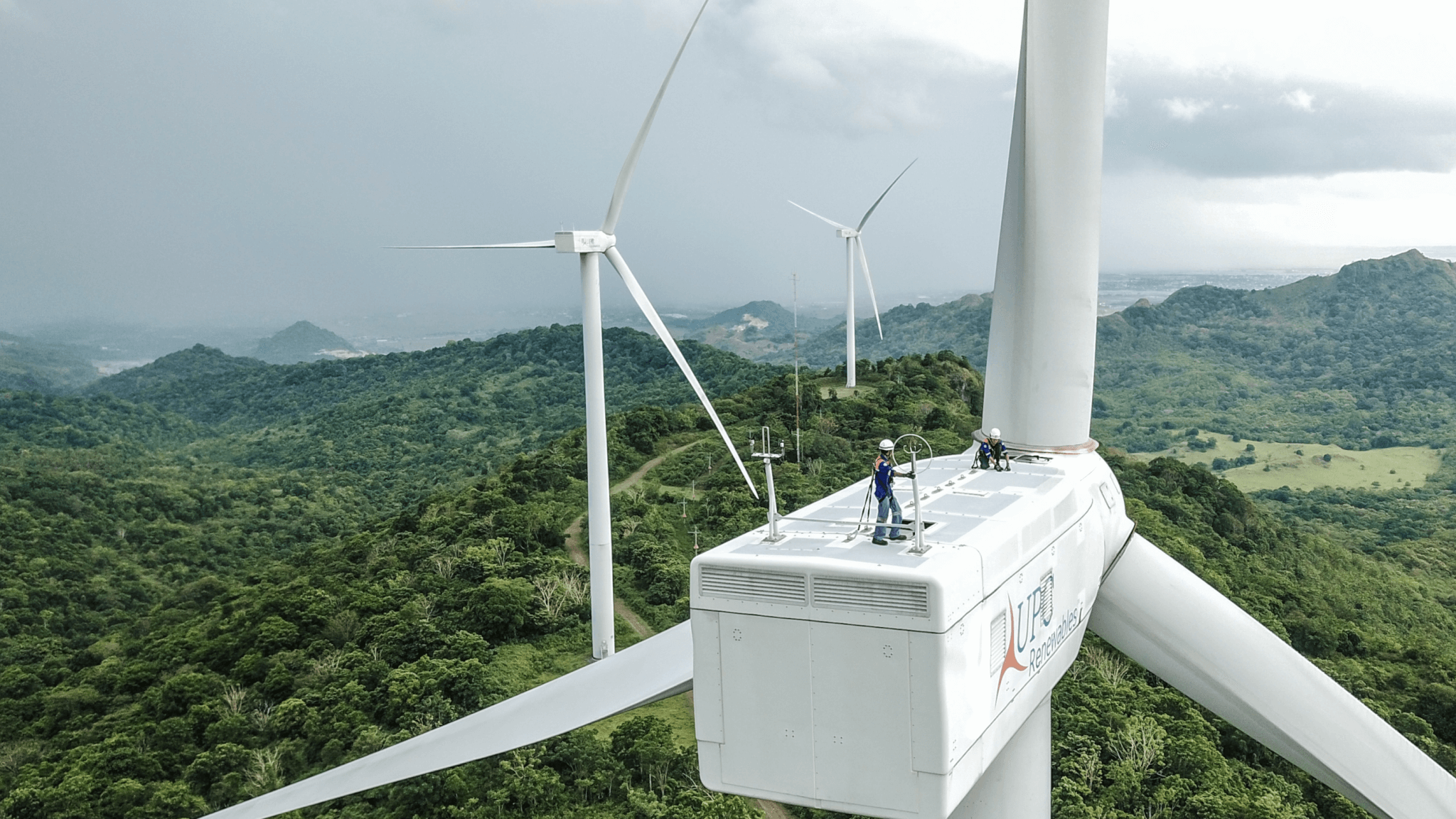
ClimateWorks Foundation’s Justin Sylvester explains how a new $20 million initiative will support a just, fair, and equitable energy transition.
Addressing the climate crisis requires swift and meaningful action to reduce global greenhouse gas emissions and transition to renewable energy. The renewable energy sector is growing rapidly worldwide, reaching new milestones in funding, employment opportunities, and energy production.
However, this energy shift also affects the livelihoods of around 32 million people around the world working in high-carbon industries. Clear and comprehensive plans to reskill workers and bolster alternative sources of livelihood are crucial to facilitating a just transition for all — especially workers and communities.
That’s why ClimateWorks Foundation launched the Just Transition initiative in 2023 — a $20 million fund supported by the IKEA Foundation — to support impacted workers and communities in shaping energy transitions in Indonesia, South Africa, and Vietnam.
Justin Sylvester, senior strategist for the Just Transition initiative , recently sat down with Felix Akoyam, senior communications associate at ClimateWorks, to discuss how philanthropy can help center justice and equity in the global energy transition.
This interview has been edited for clarity and length.
Felix Akoyam: What makes a just transition so important?
Justin Sylvester: Solving the climate crisis means rapidly decarbonizing every sector and transitioning to a low-carbon economy worldwide. However, we also believe that an effective transition must be fair and equitable.
I am a South African who has worked in philanthropy for 14 years, including on natural resources and climate change at the Ford Foundation and on human rights at Open Society Foundations. Frontline leaders and communities have taught me that the change we need to solve the climate crisis involves complexities beyond mere technical sector transformations.
The transition will disrupt the livelihoods of millions of workers and communities that depend on high-carbon industries. However, these communities with the most to lose are often excluded from decision-making processes that impact them. In many instances, there are policies and systems in place that sustain inequality to benefit those who profit from continuing the climate crisis or even implementing the green transition.
For a durable and resilient transition, affected communities and workers must see that they have a stake in the transition process and can shape a future political economy that includes and benefits them. Most importantly, they must have a voice at the decision-making table, including in conversations about trade-offs, who benefits from the transition, and how these benefits are distributed.
FA: What role can philanthropy play in supporting a just energy transition?
JS: Philanthropy has a critical role in helping address the climate crisis and advancing an agenda around a just transition. As philanthropists, we have access to resources, influence, and power. So, the question for us involves how we enable or use that influence and those resources to center justice and equity in the transition.
Our unique position allows us to leverage additional resources — not just funding, but also risk-taking capacity. Moreover, we have expertise to bring to the table and can help raise awareness. For us, the work is about pushing boundaries and taking swift and bold action in a way that governments and the private sector sometimes cannot.
FA: How can philanthropy center justice and equity in the global energy transition?
JS: Every sector and all key players must center justice and equity in the energy transition. In establishing the Just Transition initiative, our commitment to accountability to our partners is paramount. This initiative goes beyond funding; it emphasizes the importance of how we fund and the relationships we build with workers, communities, and their representative organizations.
A central element of our approach is the principle of co-creating solutions for a just transition and addressing the climate crisis through active listening and collaboration. We recognize our influence as the philanthropy community and acknowledge that we do not have all the answers. A collaborative approach means we can remain responsive to the evolving needs articulated by affected workers and communities.
To support our efforts, we have formed an Advisory Group consisting of practitioners and experts from the Global South, including our focal countries. This group has provided valuable insights and lessons to guide our approach. Often, the most effective climate solutions focused on justice and equity reside with the communities and workers most impacted by these issues. Our goal is to elevate and amplify these grassroots solutions and best practices through strong partnerships and collaboration, ensuring that the voices and experiences of communities and workers shape the path forward for a just energy transition.
FA: What key intervention areas will the Just Transition initiative prioritize in its grantmaking?
JS: From our learnings and scoping efforts, we have identified four areas to prioritize in our grantmaking. First, we aim to support local economic transitions — particularly initiatives that enable affected communities to share in the economic benefits. This may include alternative approaches such as social ownership schemes over new energy infrastructure and the mining of minerals for the energy transition. This will require some level of economic diversification or development, especially in light of economic losses linked to phasing out coal.
Second, to create conducive spaces for civic infrastructure, we will work with movements, communities, and local governments to build trust and foster dialogue in support of national and global efforts to advance a just energy transition.
Third, we will promote compelling storytelling — specifically bottom-up narratives that amplify the voices of communities impacted by the transition. We want to expand the coverage, focus, and conversation about the transition beyond the major urban centers to the peripheral areas where energy is generated. Finally, we will share our learnings within ClimateWorks, with climate philanthropy, and the community to enhance our collective impact.
FA: Why are you focusing on Indonesia, South Africa, and Vietnam?
JS: The broader vision for our just transition work is both global in scope and centered in middle and low-income countries. We chose to initially focus on Indonesia, South Africa, and Vietnam due to their significant energy investments and energy transition activities. These countries have become focal points for global civil society, private sector investments, and governmental efforts, both at high levels and within local communities where energy production occurs.
This strategic choice is partly practical, leveraging existing political momentum and heightened attention. Our aim is to gain valuable insights and experiences that will inform and expand our efforts to other regions and sectors.
FA: What other initiatives or organizations do you hope to collaborate with to amplify the initiative’s impact?
JS: Seed funding for the Just Transition initiative comes from the IKEA Foundation, but our ambition extends far beyond this starting point. We aim to involve numerous additional funders to expand our program’s reach across middle and low-income countries, where energy transition is a critical issue. We are eager to collaborate with initiatives or organizations that share our passion and commitment to the just transition agenda.
Our overarching goal is to build a broad coalition that can effectively drive the change we envision. We must unite diverse viewpoints and efforts towards our common objective to achieve a successful transition.
FA: What are other ways philanthropy can help scale just transition efforts?
JS: A just transition extends beyond an energy transition. It impacts various sectors and industries, which requires a broader coalition of actors beyond the traditional climate sphere. Philanthropy can play a crucial role by fostering these principles. It can support initiatives that prioritize local leadership and context-specific strategies, ensuring that transitions are inclusive and equitable.
Philanthropy must also focus on building broad coalitions that include diverse groups, acknowledging and addressing pre-existing injustices to avoid creating new ones. Importantly, the sector should support communities and workers to understand the real-world impacts of a just transition, enabling them to make informed decisions. By emphasizing these approaches, philanthropy can help scale efforts and achieve a more equitable and sustainable transition.


